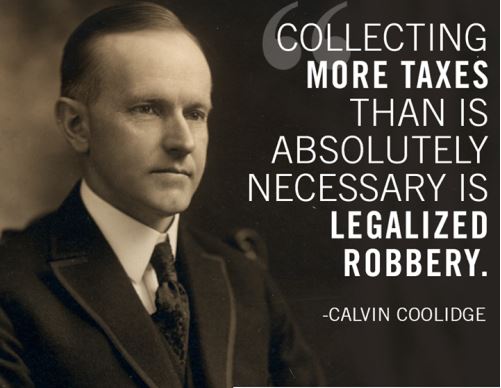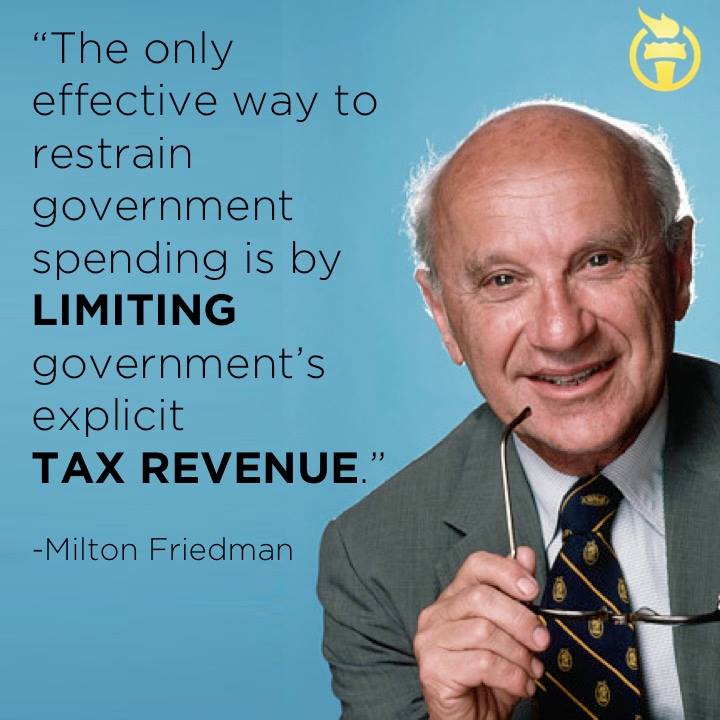CSU study finds 80 percent of Colorado taxpayers pay more because of TABOR
The Taxpayer’s Bill of Rights was supposed to keep money in people’s pockets, but 80 percent of Coloradans actually pay more in taxes to supplement their local schools, according to a study released Tuesday by the Colorado Futures Center at Colorado State University.
“Since the early 1990s, Colorado has enacted layers of reform in pursuit of two conflicting goals – lower property taxes and well-funded public schools,” said Phyllis Resnick, lead economist at the center and lead author of a paper the research for the nonpartisan Lincoln Institute of Land Policy, “Measuring the Impact of Tax and Expenditure Limits on Public School Finance in Colorado.”The Lincoln Institute is a private think tank that studies land taxes and use.
“The result is greater inequality and inconsistency, and surprisingly, a greater tax burden for most Coloradans.”
To read the rest of this article, click the following link:
http://blogs.denverpost.com/thespot/2015/09/01/csu-study-finds-80-percent-of-colorado-taxpayers-pay-more-because-of-tabor/122792/
Carroll: Averting a Colorado budget smashup
Why don’t we save the esteemed Dan Ritchie and his bipartisan group of civic-minded bigwigs a lot of time and trouble?
The former chancellor at the University of Denver and his allies who’ve founded Building a Better Colorado are going to spend months in meetings and outreach trying to identify measures for next year’s ballot to address the unique challenges in governing this state.
They’ve got former governors, senators and mayors on board, not to mention current Gov. John Hickenlooper.
To read the rest of this article, click the following link:
http://www.denverpost.com/carroll/ci_28720814/carroll-averting-colorado-budget-smashup
Blake: Sabotaging TABOR comes down to a single subject
Blake: Sabotaging TABOR comes down to a single subject
When it comes to sabotaging TABOR, term limits and the initiative process, the usual suspects tend to round themselves up.
The latest group, called “Building a Better Colorado,” is fronted by the otherwise estimable Dan Ritchie, who served 15 years as chancellor of the University of Denver, taking no pay and donating his $50 million ranch to the school.
The organization intends to hold “town hall meetings” throughout the state and produce a report recommending changes by year’s end.
Presumably most of these changes would necessitate ballot initiatives, since it’s hard to get the two-thirds majorities needed in the legislature to place referendums.
By proposing initiatives they are going to have to confront the awkward single-subject rule. More on that later.
Despite the clarity of their goals, the reformers like to talk in tiptoe-through-the-tulips terms. “It is subtle,” Gail Klapper of the Colorado Forum told The Denver Post, adding the discussions are about “nuanced changes” allowing Colorado “to move forward in the way we all want it to go.”
The Colorado Forum is just one of several civic groups behind Ritchie’s efforts. Its goals aren’t that subtle. It says on its Web site that “Colorado’s fiscal system has a structural imbalance — created by inherently conflicting constitutional mandates — that will continue to result in a widening gap between General Fund revenue and necessary expenditures.”
However “necessary” might be defined. The Forum goes on to recommend that TABOR-mandated refunds to the people be postponed and “revenue sources” not subject to the revenue cap be considered. Presumably that means imposing more “fees” instead of taxes that require a popular vote.
Calvin Coolidge Wisdom
Patriotism
Aurora right to walk away from appeal on Gaylord tax vote

AURORA, CO. – APRIL 21: Dan Steel of Mortenson Construction surveys land for the Gaylord Rockies Hotel development Tuesday morning, April 21, 2015. The controversial hotel will be Colorado’s largest at 1,500 rooms and will take 36 months to complete. (Photo By Steve Nehf/The Denver Post)
Aurora officials last week were wise to walk away from an appeal of a February court ruling that invalidated the creation of a special tax district for the Gaylord Rockies Hotel and Conference Center.
The creation of the district was a farce and clearly subverted the Taxpayer’s Bill of Rights, which stipulates that local governments cannot raise taxes without voter approval.
Only one voter cast a ballot in the election in 2011 that created the taxing district, which would have collected increased lodger taxes and admission taxes on land set aside for the hotel.
That voter wasn’t even a resident of the city but a representative of the owner of the land where the hotel is to be built.
To read the rest of this article, click the following link:
http://www.denverpost.com/editorials/ci_28682010/aurora-right-walk-away-from-appeal-gaylord-tax
Colorado leaders to review TABOR, key political issues
Exclusive: Colorado leaders to review TABOR, key political issues
“Building a Better Colorado” may offer ballot measures in 2016
A new organization led by prominent civic and business leaders is preparing to launch a campaign to tackle Colorado’s thorniest political problems as part of a project that may give rise to ballot measures in 2016.
Dubbed “Building a Better Colorado,” the bipartisan push will debut in September and feature a 40-stop statewide tour this fall to discuss topics ranging from term limits for lawmakers and the election system to the constitutional amendment process and the Taxpayer’s Bill of Rights.
The project — developed behind the scenes for months and detailed in exclusive interviews and documents obtained by The Denver Post — is perhaps the most concerted effort in recent memory to address what organizers see as inherent conflicts in how the state is governed.
To read the rest of this article, click the following link:
http://www.denverpost.com/politics/ci_28687029/exclusive-colorado-leaders-review-tabor-key-political-issues
Hickenlooper, GOP lawmakers call for hiking gas tax
Hickenlooper, GOP lawmakers call for hiking gas tax8/21/2015
The Colorado Statesman
GRAND JUNCTION — At a roundtable meeting with Club 20 on Thursday, Gov. John Hickenlooper called for a 10- to 12-cent hike in the state gasoline tax in order to fund road and bridge repairs. Two newly elected Western Slope legislators, both Republicans, state Reps. Yeulin Willett of Grand Junction and J. Paul Brown of Ignacio, joined the governor calling for a ballot proposal to ask Colorado voters to approve increasing the gas tax. “Ask the people under TABOR, ‘Do you want to keep your refund or put it in the Highway Users Tax Fund?’” said Brown. “Do you know what kind of shape our roads are in? There’s no way to keep with inflation.”
Photo by Ron Bain/The Colorado Statesman
Hickenlooper pointed out there had been no increase in the state gas tax since 1992, the year the Taxpayer Bill of Rights was approved by state voters. He observed that, historically, the Western Slope has opposed increasing the gas tax but said he saw that opposition lessening. The governor, who was asked to respond to a host of topics, including questions about transportation, the Animas River spill, the threatened shutdown of the ColoWyo Mine and the struggling North Fork Valley coal mines, natural gas production, the Colorado Water Plan, the Gunnison sage grouse, forest management, TABOR rebates and other Western Slope issues. He explained he drank a bottle of water from the Animas River in an attempt to restore Colorado’s damaged reputation as a vacation destination and to convince the Environmental Protection Association to speed up reopening the river, rather than waiting seven days. |





 Gov. John Hickenlooper talks with a Club 20 member as executive committee chairman Les Mergelman looks on at the Western Slope advocacy group’s roundtable meeting on Aug. 20 at the Mesa County Workforce Center in Grand Junction.
Gov. John Hickenlooper talks with a Club 20 member as executive committee chairman Les Mergelman looks on at the Western Slope advocacy group’s roundtable meeting on Aug. 20 at the Mesa County Workforce Center in Grand Junction.